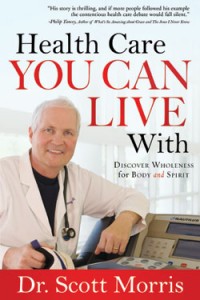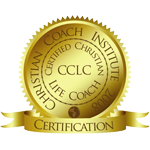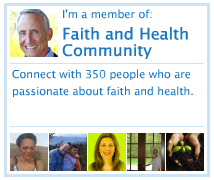 Again, here are my thoughts from reading Health Care You Can Live With by Dr. Scott Morris, founder of the Church Health Center in Memphis, Tennessee. The excerpts below are directly from Chapters 25, 26 and 27.
Again, here are my thoughts from reading Health Care You Can Live With by Dr. Scott Morris, founder of the Church Health Center in Memphis, Tennessee. The excerpts below are directly from Chapters 25, 26 and 27.
Nutrition: Food is a Gift from God
Fast foods, typically highly processed and refined, are not only bad for our physical bodies but it’s bad for our spiritual health is well. Fast food is perfect for eating alone and in a hurry – a formula for spiritual isolation. Eating alone is dangerous to your health.
For Jesus, the concept of fast food would be unacceptable. From the Gospels, we know that Jesus liked to have conversation with his meals. He used meals to create community.
We can use mealtime to nurture community while nourishing our bodies. Shared meals may take more time, but they are spiritually enriching and healthier for our bodies.
Our attitude at the Church Health Center toward nutrition is “all things in moderation.” The point of better nutrition is to build healthy, strong bodies that lead to whole people who are better connected to God. Food is God’s gift to us, and caring for our bodies with nutrition is our gift back to God.
Friends and Family: You don’t Have to Do It Alone
I’m convinced that being healthy only occurs in the midst of a community. Having family, friends, coworkers and fellow seekers of the life well lived is essential to optimum health.
Some will no doubt tell me, “all I need is willpower.” In my opinion, willpower is greatly overrated. Few of us have the innate ability to do everything necessary for health on our own. We need help. We need others to encourage us when we despair, pick us up when we fall, and walk alongside us when we tire. We may succeed in the short term on our own, but in the long term we need a team.
I’m convinced that what pulls people back from the brink of the abyss is community. Knowing you don’t have to face suffering alone is a game changer.
Family and friends are crucial to your health, and you are crucial to theirs. You receive from the community you’re part of, but you also contribute to it. Others offer qualities you need, and you offer qualities others need. Who are the people you depend on most, and what are you doing to strengthen those relationships? Who depends on you, and how are you responding to their needs?
If this (social/relational) piece of your overall health is missing, it’s not too late to surround yourself with people who care for you, and to offer relational care to others. Do this now, apart from a crisis, and a community of family and friends will be a springboard of hope when you need it most.
Emotional Life: You’re Supposed to Feel It
What we need to embrace and teach is how to get close to another human being. Doctors are trained to keep emotional distance from patients. The truth is, no one needs to learn how to be distant. Patients are connected, body-and-spirit, so why should physicians pretend they aren’t?
Life is full of emotions, some of them joyful, some of them stressful. Our health care system does not recognize that emotional and spiritual suffering can lead to physical illness.
We all have our ways of coping with painful emotions. Some push discomfort on to someone else with an aggressive comment and pay the price in that relationship. Some avoid talking about what disturbs them and hope that makes it less real, though it doesn’t. Some partition off pain and continue on with the motions of the rest of their lives, never acknowledging how unresolved emotions affect everything they do.
Stress is going to happen. It just is. Coping by making healthy choices instead of indulging old habits begins by understanding what triggers your feelings and owning up to the ways you have coped in the past.
The battles worth fighting are the ones that bring you joy and love and drive you closer to God. Save your emotional energy for things that do matter most because they deepen your experience of joy and love. Empty the trash (the strong negative emotions) on a regular basis before it gets stinky and explosive.
My Comments:
In talking with people, it sure seems that so many Americans eat on the run for many of their meals. As Morris points out, Jesus modeled a time of community and conversation when he ate his meals. This regular ‘connection’ with others – something that meals foster – is critical for our well being. We’re certainly miss out on a lot when we don’t eat meals with one another.
The medical research is clear about the importance of social support for good health. Interaction with family and friends is part of God’s design. God made us to be in relationship with others.
“It is not good for man to be alone.” Genesis 2:18
Strong negative emotions, if not managed, can cause all sorts of heath-related conditions. As Morris suggests, it’s really important that we ‘take out the trash’ on a regular basis because our ’emotional trash’ will not only affect our physical health, it will adversely affect our relational health.
Questions to Reflect On:
If you are on the go a lot and often do not eat with others in your home, are you intentional about getting together with them to experience ‘community’?
Is there at least one person in your life who you are close enough to that you can talk about important life issues with?
Could your chronic negative emotional state be affecting your health or the quality of your relationships?
Related Resources:
Article – Are Your Emotions and Thoughts Causing You Health Problems?
More Posts About This Book:
Read all the posts about this book in the category of Health Care & Wholeness
Subscribe to the RSS feed for just this category.








excellent artical and I love to read every news letter.God Bless.
Fr.Robin